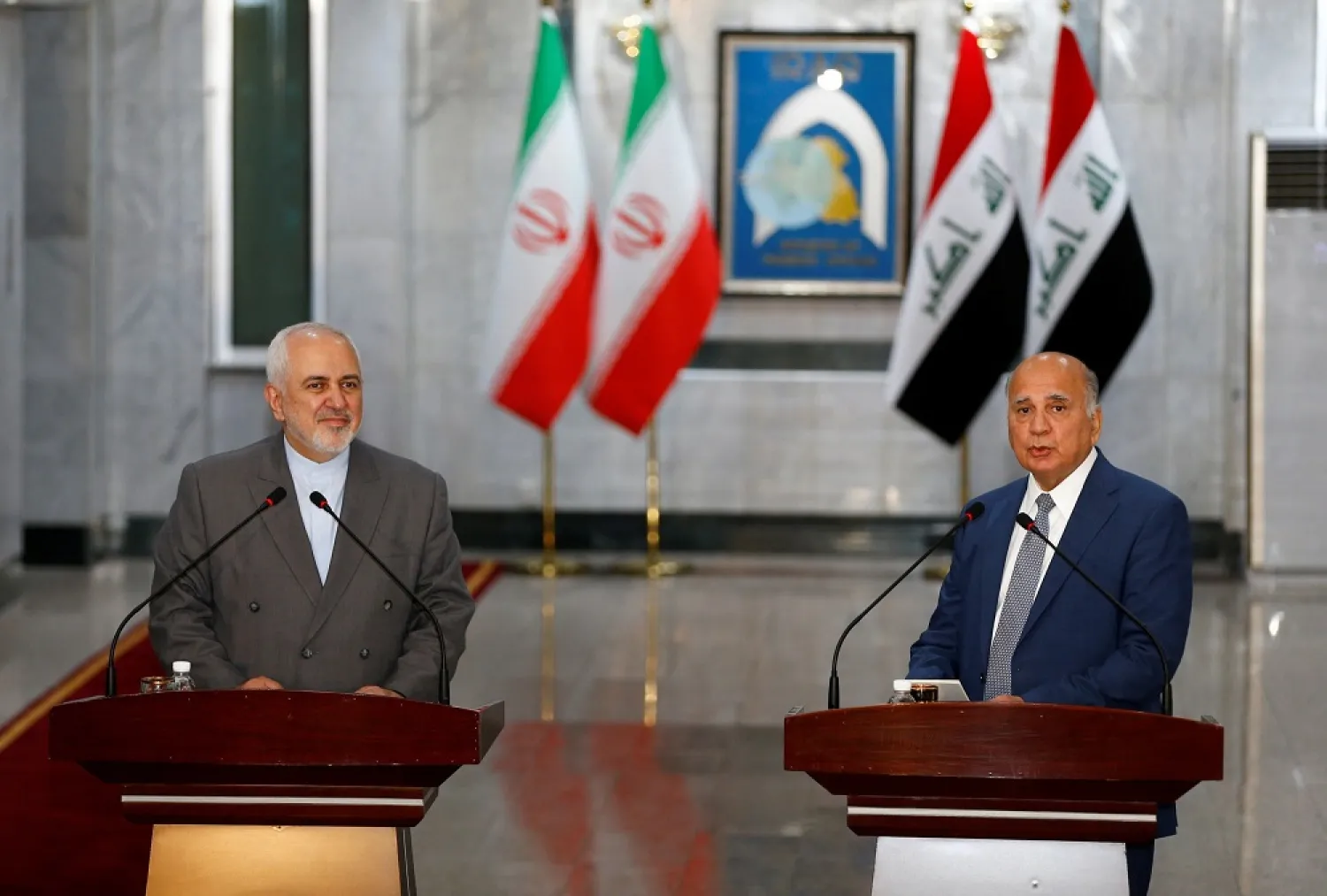Iranian Foreign Minister Mohammad Javad Zarif held Sunday a series of meetings in Baghdad that coincided with three Katyusha rockets landing in the backyard of the American Embassy in the Iraqi capital’s Green Zone.
The Iranian official met with his Iraqi counterpart, Fouad Hussein, Prime Minister Mustafa al-Kadhimi, President Barham Salih, the head of Iraq's Supreme Judicial Council, Faeq Zeidan and the leaders of some parliamentary blocs.
The visit came as three rockets struck the heavily fortified Green Zone, where Iraq's government and the US embassy are located. The projectiles are believed to be a clear message from pro-Iranian groups in Iraq of their rejection of the US presence in the country.
Commenting on the incident, the Iraqi Joint Operations Command said that the sides responsible were keen on undermining the state, adding that the prime minister, in his capacity as commander-in-chief of the armed forces, ordered the joint operations command to bring the perpetrators to justice.
A security source did not give any details about the side responsible for the attack or the location from where the rockets were launched.
Meanwhile, Iraqi officials who met with Zarif stressed their keenness to hold balanced relations with all countries in the region.
“The region needs to build balanced relations, mutual understanding, coordination and a clear vision to reach radical solutions to crises and tensions by relying on constructive and frank dialogue between all international parties,” President Salih told the Iranian official.
He stressed that "Iraq attaches importance to protecting its sovereignty, security and stability and cooperates with allies and friends within the framework of mutual respect and non-interference in internal affairs.”
For his part, Kadhimi said his country seeks to confirm its balanced and positive role in making peace and achieving progress in the region in a way that reflects positively on all its people with more stability, prosperity and sustainable development.
Zarif, meanwhile, stated that Tehran is looking forward to launching a new and positive stage of relations with Iraq and activating agreements between the two countries in various sectors.
During talks between Zarif and his Iraqi counterpart, the two sides discussed diversification and strengthening frameworks of joint cooperation in various fields, including infrastructure projects such as railway linkage, electricity, trade, investment and confronting the coronavirus pandemic.
Professor of political science at the Al-Mustansiriyah University, Dr. Yassin al-Bakary told Asharq Al-Awsat that Iraq is keen on discussing joint Iraqi-Iranian issues and to prepare the agenda of Kadhimi’s upcoming visit to Iran.









